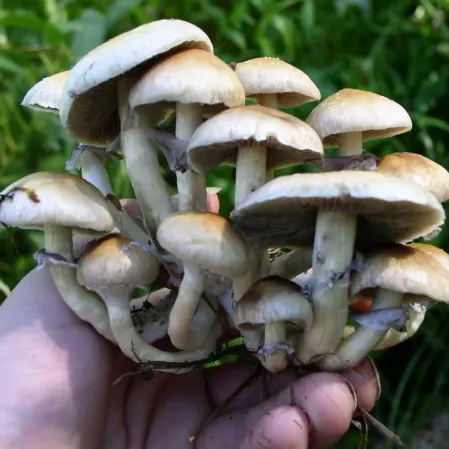What to do if you feel too high:
- Find a safe, cozy and positive environment
- Repeat a mantra (“this too shall pass”, “I am ok”, “I am love”, “I am peace”)
- Take deep breaths
- Put earbuds in and listen to a calming meditation music
- Have a good support person with you or nearby
- Take a rest
If you or someone you know would like peer support during an experience, you can call 62-FIRESIDE (623-473-7433). If needed, seek medical/psychological help. Emergency rooms have been known to use medicines like benzodiazepines to help reduce effects.
Legal Consideration
Psilocybin mushrooms are federally illegal in the US. There are many US cities and 1 state that have decriminalized them including Ann Arbor/Washtenaw County, Detroit, Hazel Park, Ferndale and Ypsilanti. This does not mean that you can buy mushrooms. Commercial sales are not allowed. If you are in one of the decriminalized areas, you can possess, use, grow, and transport, and share entheogenic plants and fungi.
How to grow your own mushrooms?
Growing mushrooms is such a fun hobby! If you lived in a area that has decriminalized the best way to source them is to grow your own. Here is a video that shows you how.
What is psilocybin assisted therapy?
Psilocybin-assisted therapy or psilocybin assisted psychotherapy is psilocybin treatment with the psychological support of a trained therapist. Research has demonstrated the efficacy of psilocybin to help in the treatment of many mental health conditions The structure of psilocybin-assisted psychotherapy includes preparation, support during dosing sessions, and integration. Psilocybin-assisted therapy can be a very effective model when compared to taking psilocybin without therapy due to the psychologically insightful experiences during the session and especially following the integration of the sessions.
What is psychedelic Integration?
Psychedelic integration is the process that takes place after the psychedelic experience, and Blue Sage feels this is the most important part of the transformational therapeutic process on your path towards wholeness. ERIE defines integration as “the process by which the material accessed and insights gained in a [psychedelic] experience are incorporated over time into one’s life in a way that benefits the individual and their community.”
Blue Sage offers individual and group integration support.
How to talk to your practitioner about psilocybin?
Do your homework – Psilocybin can be very effective, but due to it’s legal status, it has been very challenging to study and has kept the medical/science field in the dark. This can make it tricky to have a discussion about it with a practitioner. Do a lot of research because you may need to educate or offer resources to them
Test the water – It is best to be honest with your practitioner, but please note that whatever you say, while confidential, will liekly be written in your medical record and seen by your insurance company. Also, some practitioners may be worried they’ll get in trouble for talking about it with you. If this is the case you may want to start by saying that you read some fascinating research/book and you were wondering what they thought.
Be aware that you may be the person who educates your practitioner or changes their mind about entheogens, opening the door for more treatment options for your practitioner and their other clients.
Because of its current legal status, lack of knowledge, etc. your current practitioner may not be on-board. There could be a lot of personal and professional reasons for that, and they should be respected. But just because it’s the end of the conversation with that practitioner, doesn’t mean it’s the end of the conversation for you. It does, however, mean you may need to consider finding someone else who’s more open or consider traveling to a place it is legal/decriminalized for treatment.

